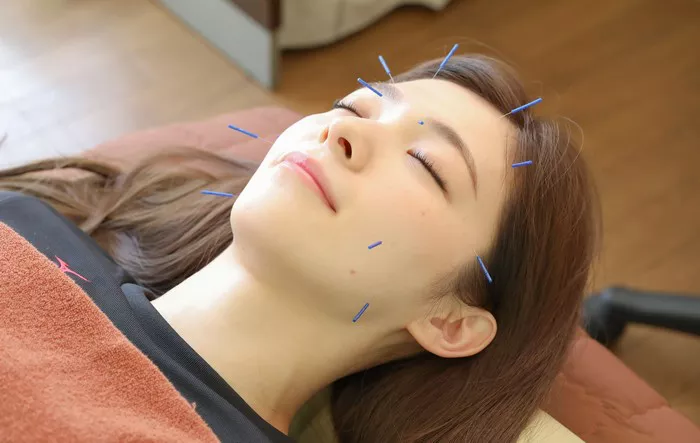Introduction
Scars can be a source of discomfort and self-consciousness for many people. They can be caused by a variety of factors, including injuries, surgeries, and acne. Laser treatments have become a popular option for treating scars, as they can be effective and non-invasive. However, a common question among those considering laser treatment for their scars is whether or not the scars will come back after the treatment. In this article, we will explore this question in depth.
What are Laser Treatments for Scars?
Laser treatments for scars are non-invasive procedures that use focused light energy to target and break down scar tissue. The laser is able to penetrate the outer layers of the skin and reach the deeper layers where scar tissue is located. The heat from the laser stimulates the body’s natural healing process, which can help to reduce the appearance of scars.
There are several different types of lasers that can be used for scar treatment, including fractional lasers, pulsed dye lasers, and ablative lasers. Each type of laser works in a slightly different way and may be more effective for certain types of scars.
How Laser Treatments Work
Laser treatments for scars work by breaking down the scar tissue and stimulating the body’s natural healing process. The laser is able to penetrate the skin and reach the deeper layers where scar tissue is located. The heat from the laser can help to break down the scar tissue, which can reduce the size and thickness of the scar.
The laser also stimulates the production of collagen, which is a protein that is essential for healthy skin. Collagen helps to improve the texture and elasticity of the skin, which can further reduce the appearance of scars.
Do Scars Come Back After Laser?
One of the most common questions about laser treatments for scars is whether or not the scars will come back after the treatment. The answer to this question depends on several factors, including the type of scar being treated, the type of laser being used, and the individual’s skin type and healing process.
For some types of scars, such as keloid scars, there is a higher risk of the scars returning after laser treatment. Keloid scars are raised, thickened scars that extend beyond the boundaries of the original injury. They can be difficult to treat and may require multiple treatments. The most effective laser treatment for keloid scars is the pulsed dye laser. However, even with this treatment, there is a risk of the scars returning.
For other types of scars, such as hypertrophic scars, the risk of the scars returning after laser treatment is lower. Hypertrophic scars are raised, red scars that are similar to keloid scars but do not extend beyond the boundaries of the original injury. The most effective laser treatment for hypertrophic scars is the fractional laser. This treatment has been shown to be effective in reducing the size and thickness of the scars, and the risk of the scars returning is lower.
For acne scars, the risk of the scars returning after laser treatment is also lower. Acne scars are a common type of scar that can be caused by severe acne. The most effective laser treatment for acne scars is the ablative laser. This treatment has been shown to be effective in reducing the size and thickness of the scars, and the risk of the scars returning is lower.
For surgical scars, the risk of the scars returning after laser treatment is also lower. Surgical scars are a common type of scar that can be caused by a variety of surgical procedures. The most effective laser treatment for surgical scars is the fractional laser. This treatment has been shown to be effective in reducing the size and thickness of the scars, and the risk of the scars returning is lower.
Factors That Affect Scar Recurrence
There are several factors that can affect the risk of scar recurrence after laser treatment. These include:
Type of scar: As mentioned earlier, some types of scars are more likely to recur after laser treatment than others.
Type of laser: Different types of lasers work in different ways and may be more effective for certain types of scars. Using the right type of laser for the specific type of scar can help to reduce the risk of recurrence.
Skin type: Individuals with darker skin tones may be more prone to scarring and may have a higher risk of recurrence after laser treatment. It is important to consult with a dermatologist or plastic surgeon to determine the best treatment plan for your individual needs.
Healing process: The body’s natural healing process can also affect the risk of scar recurrence. Individuals who have a slower healing process may be more prone to scarring and may have a higher risk of recurrence after laser treatment.
Conclusion
In conclusion, laser treatments can be an effective option for treating scars. The risk of scar recurrence after laser treatment depends on several factors, including the type of scar being treated, the type of laser being used, and the individual’s skin type and healing process. For some types of scars, such as keloid scars, the risk of recurrence is higher. However, for other types of scars, such as hypertrophic scars, acne scars, and surgical scars, the risk of recurrence is lower. It is important to consult with a dermatologist or plastic surgeon to determine the best treatment plan for your individual needs and to discuss the risk of scar recurrence.
[inline_related_posts title=”You Might Be Interested In” title_align=”left” style=”list” number=”6″ align=”none” ids=”4368,4365,4362″ by=”categories” orderby=”rand” order=”DESC” hide_thumb=”no” thumb_right=”no” views=”no” date=”yes” grid_columns=”2″ post_type=”” tax=””]
































